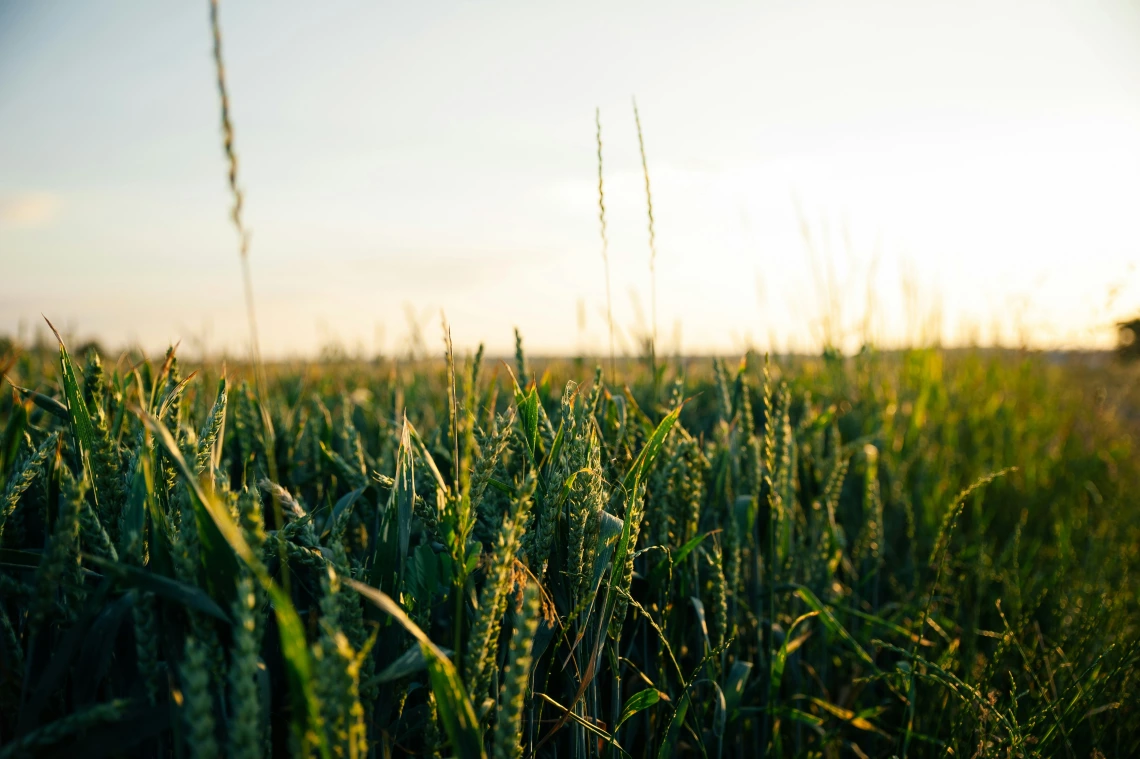Nature's umbrella: how cover crops mitigate weather-induced agricultural losses
Learn about the latest insights for climate-smart farming and how cover crops fortify agriculture against extreme weather, reducing losses and enhancing resilience.


In working to understand and strengthen crop resilience in the face of extreme weather events, Assistant Professor Serkan Aglasan, along with colleagues, has released a new research papers 'Cover Crops, Crop Insurance Losses, and Resilience to Extreme Weather Events’, published in the American Journal of Agricultural Economics.
This research, conducted in the heart of the main row crop production region in the Midwestern United States, unveils insights into the relationship between cover crop adoption and mitigating crop insurance losses triggered by drought, excess heat, and excess moisture.
The study delves into the pivotal question of whether the adoption of cover crops serves as a shield against the economic fallout of extreme weather conditions, particularly in the context of crop insurance losses. Leveraging a comprehensive county-level panel dataset spanning the years 2005 to 2018, the research employs rigorous econometric models and a range of robustness checks to validate its findings.
"To the best of our knowledge, our study is the first to empirically investigate whether cover crops reduce extreme-weather-related production losses using long-term data over a major agricultural region in the US," Aglasan said. "In addition, this study complements existing agronomic studies that argue that cover crops improve soil properties over time (e.g., biological, chemical, and physical properties), which in turn enhance resilience to extreme weather events."
Key Takeaways
-
Reduced Insurance Losses: Counties with higher cover crop adoption exhibit a noteworthy reduction in crop insurance losses associated with extreme weather events, such as drought, excess heat, and excess moisture.
-
Differential Impact: The study indicates that cover crops likely have stronger loss mitigation effects against excess moisture events (like floods) and somewhat weaker loss mitigation impacts against droughts and excess heat.
-
Resilience Enhancement: The overarching conclusion is that cover crops have the potential to enhance resilience in agriculture, particularly in the face of climate change-induced extreme weather events.
Impact in today's agricultural landscape
The agricultural sector faces unprecedented challenges, ranging from unpredictable weather patterns to the increasing frequency and severity of extreme events.
“Farmers may not recognize all the benefits of using cover crops due to their initial emphasis on the costs of planting and removing them," Aglasan said. "Given that only about 4% of farmers currently employ cover crops nationally, we believe this research will contribute to increasing their adoption.”
The research emphasizes the role of cover crops as a proactive and effective climate change adaptation strategy. By mitigating crop insurance losses, cover crops emerge as a tangible and practical tool for farmers to enhance their resilience to the adverse effects of extreme weather events. This not only safeguards the economic interests of farmers but also contributes to the overall stability and sustainability of the agricultural sector.
The implications of this research extend beyond academia, resonating with policymakers, agricultural practitioners, and stakeholders invested in fostering a resilient and adaptive agricultural landscape. The study encourages a reevaluation of agricultural practices and emphasizes the importance of integrating cover crops into mainstream farming strategies to build a more resilient and sustainable future for the Midwestern United States and beyond.
